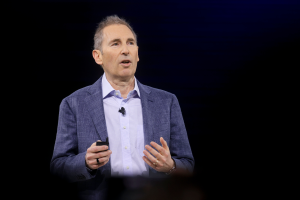Making AI Models Forget Data Hurts Their Performance

A recent study reveals a major problem with AI ‘unlearning’ techniques.
When AI models are made to forget certain data, their overall abilities drop.
This discovery was made by top researchers from UW, Princeton, USC, and Google.
How AI Models Learn
Generative AI models, despite their advanced appearances, lack true intelligence. Instead, they rely on vast amounts of data to identify patterns and make predictions. For instance, given a partial email ending with ‘Looking forward…’, an AI might suggest ‘to hearing back,’ based on the numerous emails it has analyzed before.
Most AI models, including widely recognized ones like GPT-4, are trained on publicly available data from across the web. This practice, supported by some developers, has also sparked legal battles with copyright holders who argue that their work is being used without proper consent or compensation.
The Concept of Unlearning
Unlearning is introduced as a solution to remove specific data from AI models. It aims to make these models forget undesired information, such as private details or copyrighted content.
However, unlearning isn’t as simple as just deleting data. Current techniques involve complex algorithms that attempt to redirect the model’s output away from the unwanted data.
Researchers designed a benchmark called MUSE to evaluate unlearning algorithms. It tests whether models can successfully forget given passages and related knowledge, such as ‘Harry Potter’ book excerpts while retaining general related information.
Challenges with unlearning techniques
In their evaluations, the researchers found that most unlearning algorithms tested achieved the goal of making models forget the targeted data.
Nevertheless, these techniques also led to a significant reduction in the models’ capabilities to answer general questions. This presents a dilemma—while they protect privacy, they diminish the model’s overall utility.
Therefore, the complexity of entangled knowledge within AI models poses a tough challenge. Removing specific data often unintentionally affects other related knowledge.
The Legal and Ethical Implications
Unlearning techniques are gaining attention partly because of copyright issues. Many lawsuits from authors, publishers, and record labels push for more control over the data used to train AI.
Besides copyright, unlearning is also seen as a way to handle private information. Given government orders, models could potentially erase sensitive data, such as medical records or personal photos.
That said, current tools like opt-out mechanisms only apply to future models, not those already trained. Thus, unlearning appears to offer a more comprehensive data removal solution.
The Study’s Key Findings
The study demonstrated that unlearning leads to trade-offs in AI model performance.
While privacy concerns necessitate unlearning, the resulting decline in model utility cannot be overlooked.
Thus, the study makes clear that more research is needed to develop effective, efficient unlearning methods.
Without breakthroughs, models might remain vulnerable to misusing sensitive data, challenging developers to reconsider their approaches.
Future Prospects and Challenges
Despite the current limitations, researchers believe that unlearning has potential.
Continued studies are crucial for finding techniques that balance data removal with model performance.
For now, developers must explore alternative strategies to address unlearning’s drawbacks.
It’s a complex issue, but with focused research, there might be solutions on the horizon.
Practical Implications for Developers
Developers need to weigh the advantages and disadvantages of implementing unlearning techniques.
Ensuring model performance while maintaining data privacy is a complicated task.
They must stay updated with ongoing research to adopt more effective strategies.
Unlearning techniques present a significant challenge for AI models.
Balancing data privacy with performance requires more research.
The future holds potential, but current methods are not yet ready for widespread use.








